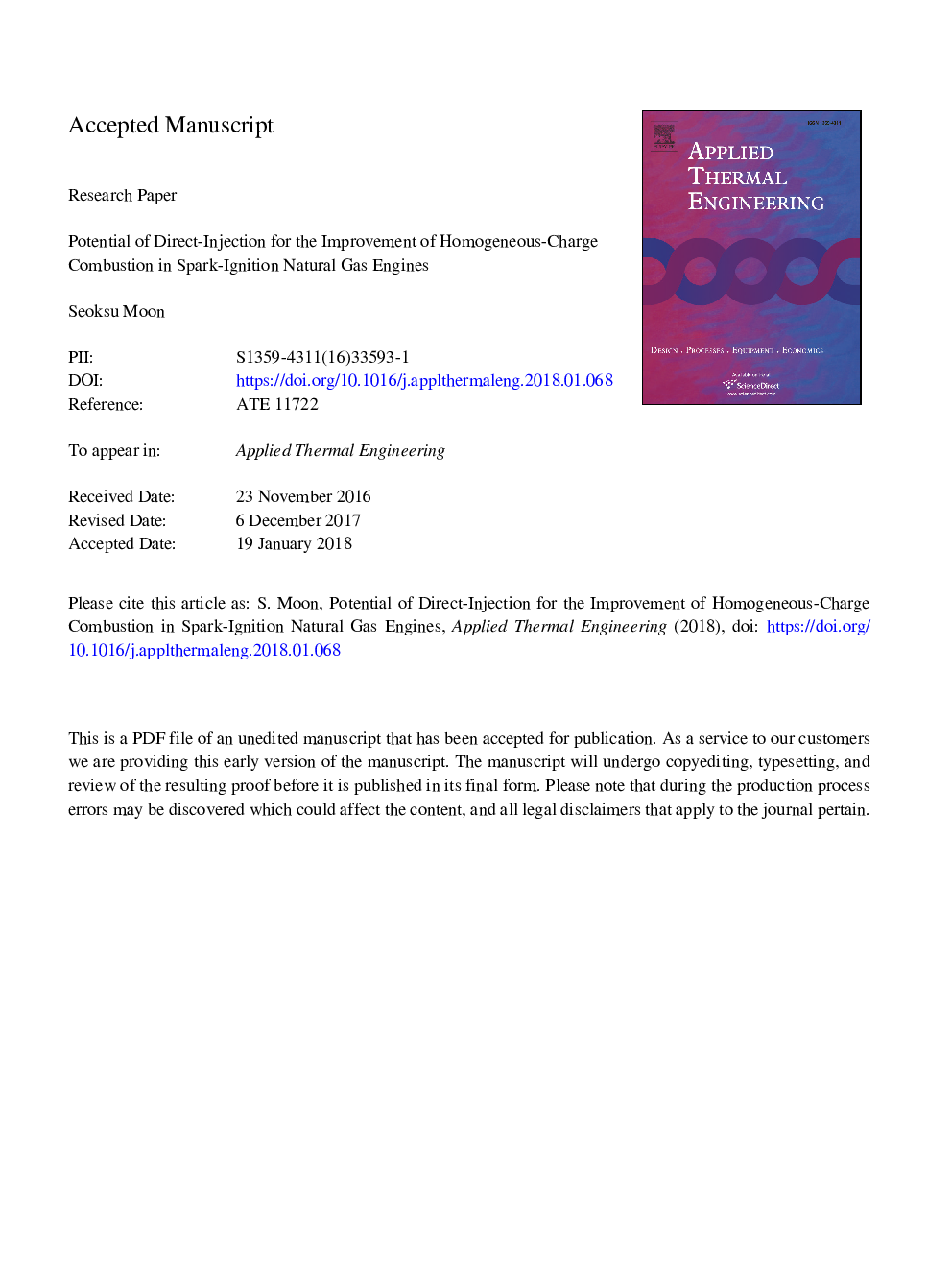| Article ID | Journal | Published Year | Pages | File Type |
|---|---|---|---|---|
| 7045530 | Applied Thermal Engineering | 2018 | 24 Pages |
Abstract
The direct-injection has been considered as a way to improve the performance of conventional spark-ignition natural gas engines with the port-fuel-injection by increasing the engine volumetric efficiency. However, insufficient attention has been paid to the potential of direct-injection for the combustion and thermal efficiency improvement of homogeneous-charge combustion in natural gas engines that can be achieved by the spray-induced turbulence enhancement of the in-cylinder fuel-air mixture. The current study investigates the engine thermal efficiency, combustion speed, combustion stability and hydrocarbon emissions of a direct-injection natural gas engine under varied injection timings, and compares the combustion characteristics of the direct-injection with those of port-fuel-injection. Then, a particular engine operation scheme (port-fuel-injection of natural gas and direct-injection of nitrogen) is applied to evaluate the potential of spray-induced turbulence on the thermal efficiency improvement in the homogeneous-charge combustion mode. The results showed that the direct-injection could improve the engine combustion speed, combustion stability and thermal efficiency in low-load conditions as a result of enhanced in-cylinder turbulence at retarded injection timings. Meanwhile, the direct-injection decreased the engine thermal efficiency in high-load conditions and increased the hydrocarbon emissions regardless of the engine load condition due to the deteriorated mixture homogeneity. When the in-cylinder turbulence and mixture homogeneity were both achieved, a few percent of thermal efficiency improvement was obtained by the direct-injection, and the improvement rate increased as the engine load decreased.
Related Topics
Physical Sciences and Engineering
Chemical Engineering
Fluid Flow and Transfer Processes
Authors
Seoksu Moon,
